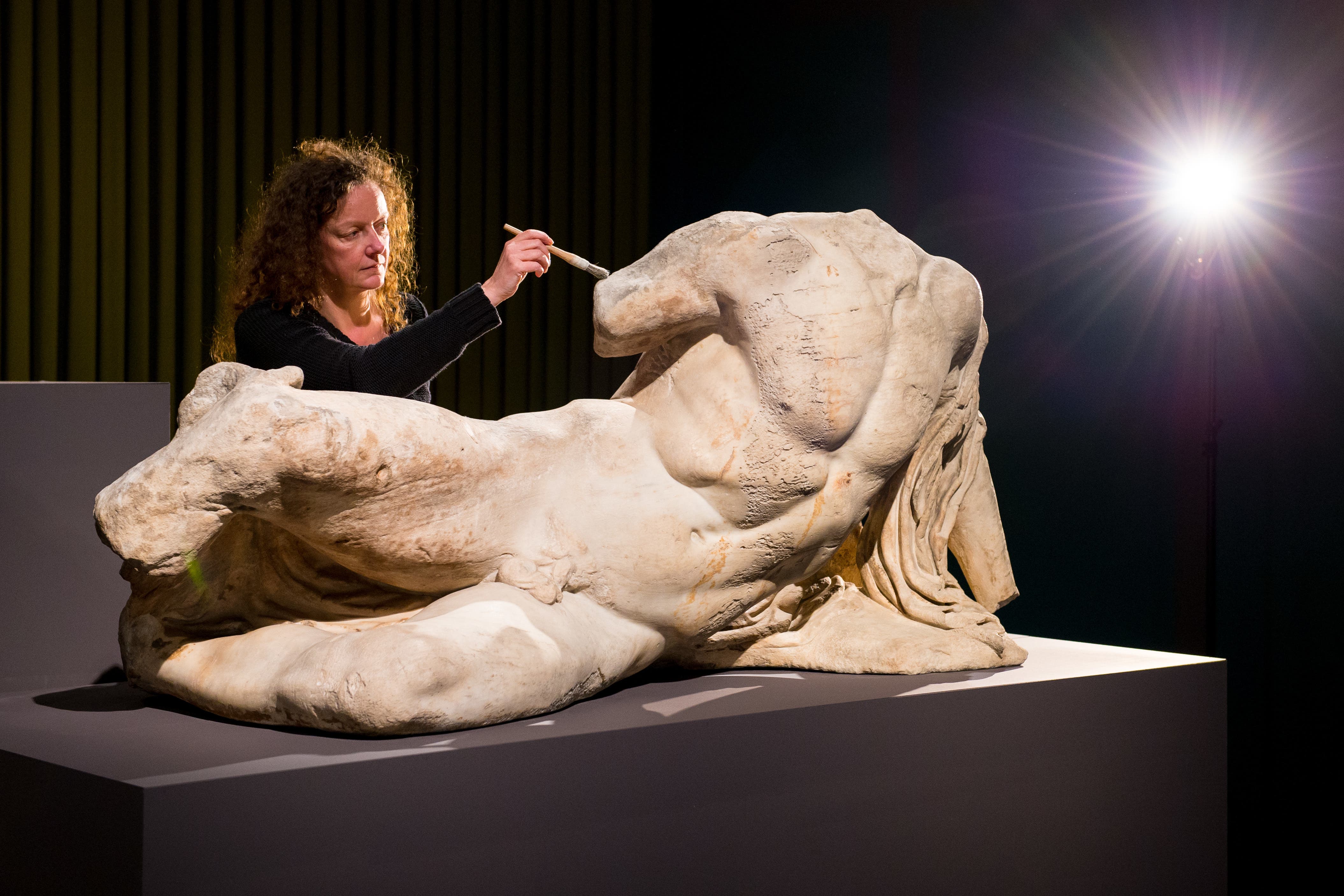Elgin Marbles could be returned temporarily to Greece in swap scheme – Osborne
Greece has long called for the return of the Parthenon sculptures.

Your support helps us to tell the story
From reproductive rights to climate change to Big Tech, The Independent is on the ground when the story is developing. Whether it's investigating the financials of Elon Musk's pro-Trump PAC or producing our latest documentary, 'The A Word', which shines a light on the American women fighting for reproductive rights, we know how important it is to parse out the facts from the messaging.
At such a critical moment in US history, we need reporters on the ground. Your donation allows us to keep sending journalists to speak to both sides of the story.
The Independent is trusted by Americans across the entire political spectrum. And unlike many other quality news outlets, we choose not to lock Americans out of our reporting and analysis with paywalls. We believe quality journalism should be available to everyone, paid for by those who can afford it.
Your support makes all the difference.The Elgin Marbles could be returned temporarily to Greece in exchange for ancient artefacts that have never been seen in the UK before, chairman of the British Museum trustees George Osborne has said.
The high-profile theft of thousands of objects from the British Museum has drawn renewed attention to the disputed Parthenon sculptures, with some questioning their safety in the institution.
Greece has been campaigning for decades for the return of the artefacts, which once adorned the Parthenon atop the Acropolis in Athens.
The country has long claimed they were illegally acquired during a period of foreign occupation, while British officials have rebuffed repeated demands for their return.
Responding to criticism from the Greek culture minister of treatment of the Elgin marbles, former chancellor Mr Osborne said he wanted to explore an arrangement where the Parthenon sculptures spent time in Greece.
He told MPs on the Culture, Media and Sport Committee: “We think they play a very important part at the museum in telling not just the story of ancient Athens and its role in the world but how it sits alongside other great civilisations.
“I think it’s worth exploring – and I’ve been in direct talks with the Greek government about this – is there some sort of arrangement that would allow some of the sculptures to spend some of their time in Greece? And what would be the partnership that would be born of that?”
Mr Osborne noted that the presence of the Marbles in the UK had been controversial for the 200 years since they were first brought across by Lord Elgin, the British ambassador to the Ottoman Empire between 1803 and 1812.
He added: “It’s not a particularly happy situation where we have had this stand-off with Greece for many decades, and the level of scholarship and engagement that we have with many other countries is not one that is replicated with some Greek museums.”
He continued: “We want to create a proper partnership that would mean objects from Greece coming here, objects that have potentially never left Greece before and certainly never been seen before, and objects from the Parthenon collection potentially travelling to Greece.
“But if this was an easy problem to solve it would have been solved in the 1810s and ever since. It’s a problem British governments of all colours have wrestled with.”
Later on in the session, Lord Parkinson, parliamentary under-secretary of state for arts and heritage, said “there is no prohibition in law” about them going abroad.
However, he said Greece would have to acknowledge that the British Museum “owns” the items so they can be returned to London.
When an MP expressed concerns about the return of the sculptures being remote, Lord Parkinson said: “That would be a matter for the museum and the Greek Government to discuss and reassure each other and His Majesty’s Government about… I would have lots of questions about how it’s described and how that is assured.”